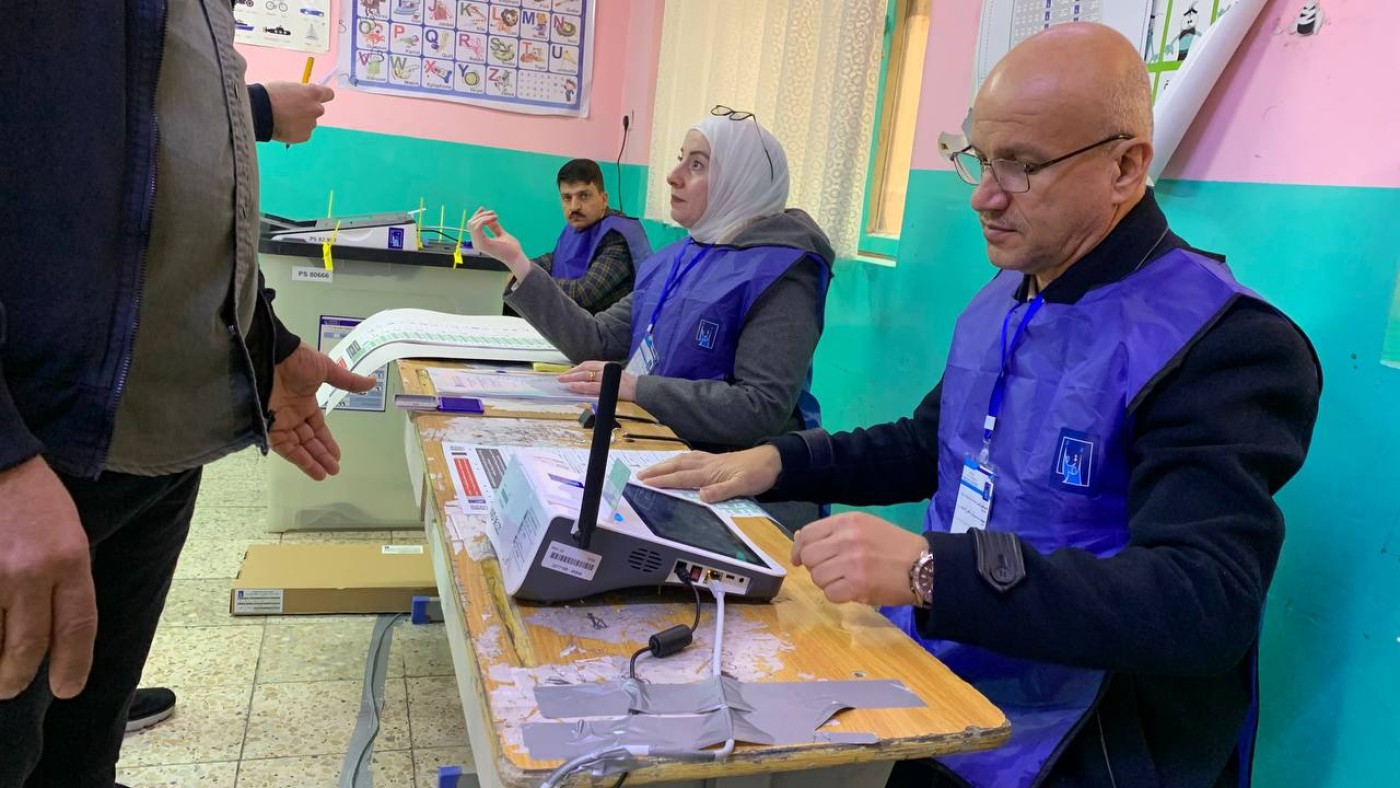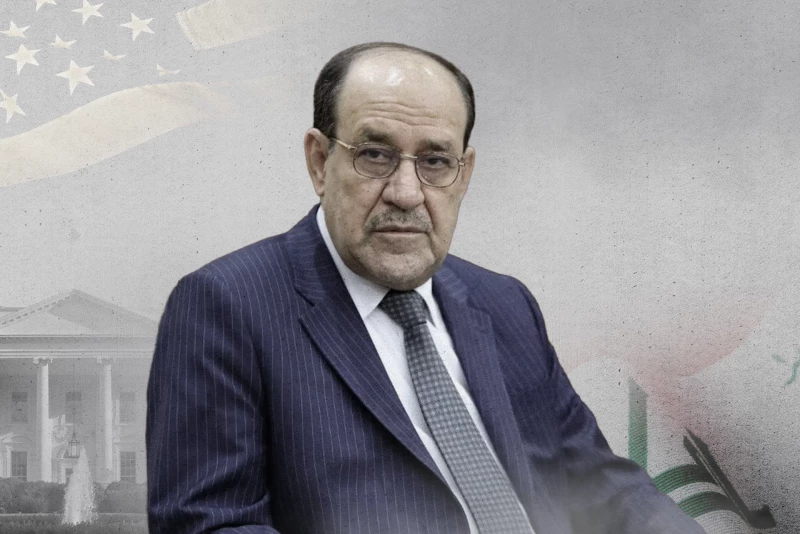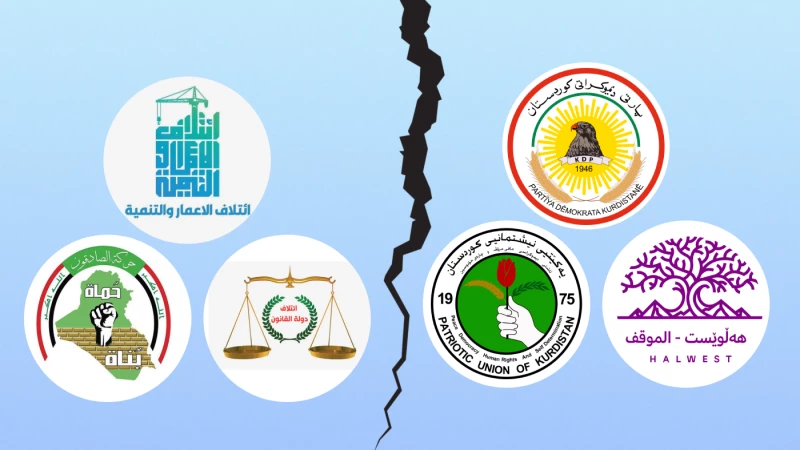The Coordination Framework faced a great challenge over a year ago, when they formed the government on their own after the withdrawal of the Sadrist faction.
Their challenge was to prove their ability of attracting crowds and the success of this cabinet without leaving any room for the Sadrists to capitalize on any of the cabinet’s shortcomings.Iraq
To achieve this, they focused on two main promises, employment and services.
The government preached services and announced thousands of employment opportunities, but the results of the provincial elections were not what they expected.
The Coordination Framework not only did not succeed in winning the support of the Iraqi public, rather, its unilateral seizure of power and the economic crisis in the country were some of the reasons for its setback, after the elections recorded the lowest turnout rate in the history of any Iraqi elections.
The results of the recent elections clearly showed the decline of the Coordination Framework’s popularity, according to analyst Ghazi Faisal, attributing the decline to the fact that Prime Minister Mohammed Shia al-Sudani is yet to offer any real attempt at improving the country’s conditions.
Despite their promises of providing services to people, these promises were “unreal”, according to Faisal, who defined the Framework as the de facto ruler of Iraq.
“The Coordination Framework will take advantage of its control over the provincial and federal governments to achieve satisfactory results in the next parliamentary elections, due to its fear of the Sadrist movement’s reemergence in those elections,” he told the New Region.
According to Faisal, the Sadrist movement’s seats will increase after their increasing popularity and the Framework’s inability to deliver their promises to people.
The Independent High Electoral Commission announced a 41 percent participation rate across the country in the latest elections. This number is out of 16 million people who had updated their biometric and voting data.
Imaginary Percentage
According to the latest data announced by the electoral commission, around 23 million Iraqis were eligible to vote in 2021, which political analyst Falah al-Mashaal believes is the base number from which the percentage of participation is extracted.
“The percentage of the voters, if calculated based on the total number of Iraqis that have a right to vote is only 26 percent, however if it is calculated based on people who updated their voting IDs, it is 41 percent and it is not real,” Mashaal told the New Region, adding that the real percentage shows the intensity of the boycott campaign in the election.
According to him, the reason behind the Framework’s setbacks is because the slogan of providing services and improving the economic situation is “outdated,worn-out, and will no longer deceive the voters again.”
Iraq has undergone five parliamentary elections since 2003, and the recent provincial elections were the sixth in the country’s modern history.
The participation rate in the 2005 elections was at 76 percent, which is the highest ever recorded, and the rate has been declining ever since, however up until 2018, the participation rate was calculated based on the number of Iraqis with the right to vote.
The country’s last two elections in 2021 and 2023 recorded the lowest participation rates, and those participation rates were tampered with, showcasing the decline of the Iraqi public’s interest in the electoral process.
Failed promises
After assuming the premiership, Sudani made dozens of promises, whether through his ministerial platform or through the conferences he took part in.
“The results of the provincial elections demonstrated the failure of the Coordination Framework to increase its popularity due to its failure to provide services and improving the economic situation as they had promised,” political analyst Nizar Haider told the New Region.
According to Haider, the government’s inability to perform any real change or reform, with the services and economic situation deteriorating further, is what prompted an increasing boycott of the electoral process.
The Coordination Framework’s seizure of power, despite not being the winner of the 2021 elections, was another reason why electoral turnout was low, and the public wanted to express their dissatisfaction with that process, Haider added.
Since the formation of the current cabinet, the economic crisis in the country has come to the fore, especially following the US taking serious steps towards limiting the smuggling of dollars. Such measures led to the price of a single dollar to rise to 1700 IQD, and despite the government attempting to stabilize the price at 1300 IQD, but the difference in the black market remained large.
Two million votes
Despite the low turnout in the elections, the Coordination Framework has denied all those allegations.
According to Mahdi Taqi Amerli, head of the Badr parliamentary bloc affiliated to the Coordination Framework, the decline in participation rate does not mean a decline in the Framework’s popularity, as the Framework has received over two million votes in all governorates.
“The Coordination Framework has fulfilled many of the slogans it had during the formation of Sudani’s government, most notably the interest in the service aspect, and there are large construction campaigns currently taking place, in addition to reducing the price of the dollar,” Amerli told the New Region, adding that the government has worked towards reducing the price of the dollar and controlling the market gradually.
While Amerli perceived the Sudani cabinet a “success for the Framework”, he added that the cabinet’s success will have positive effects on the next parliamentary elections and the Coordination Framework’s seats will “increase significantly”.



 Facebook
Facebook
 LinkedIn
LinkedIn
 Telegram
Telegram
 X
X


